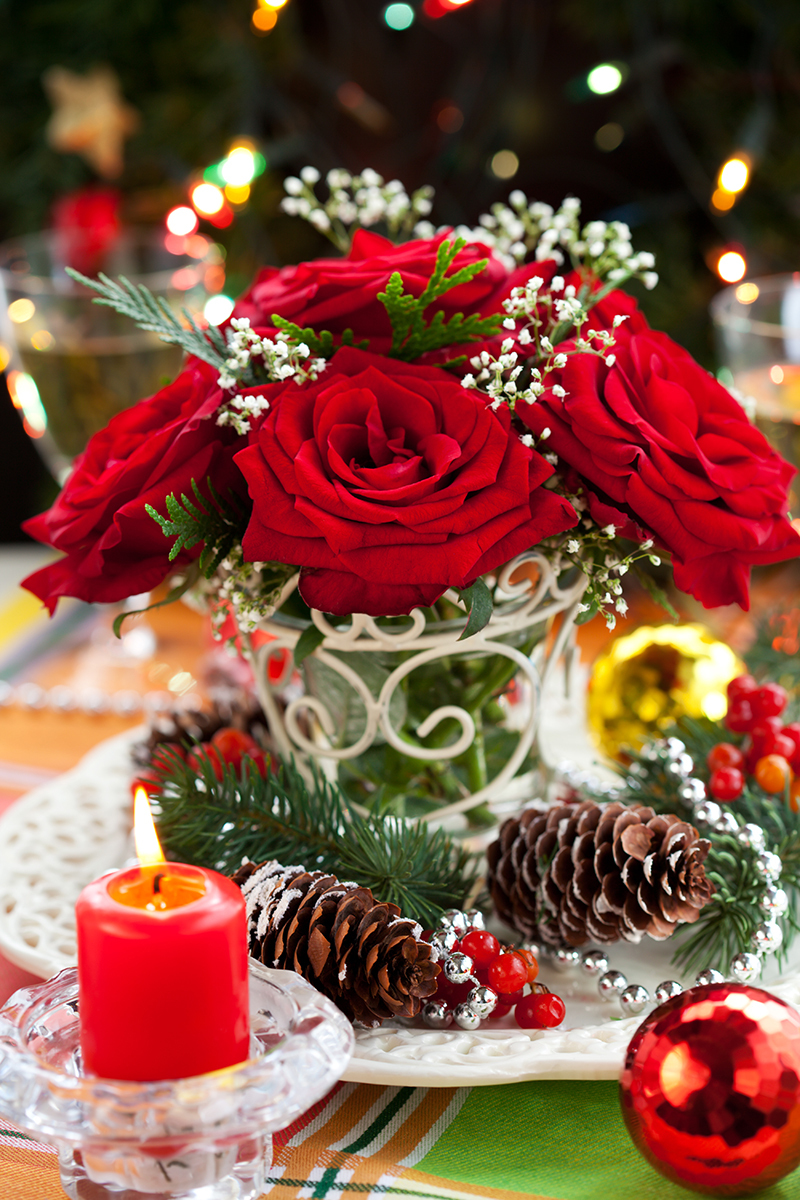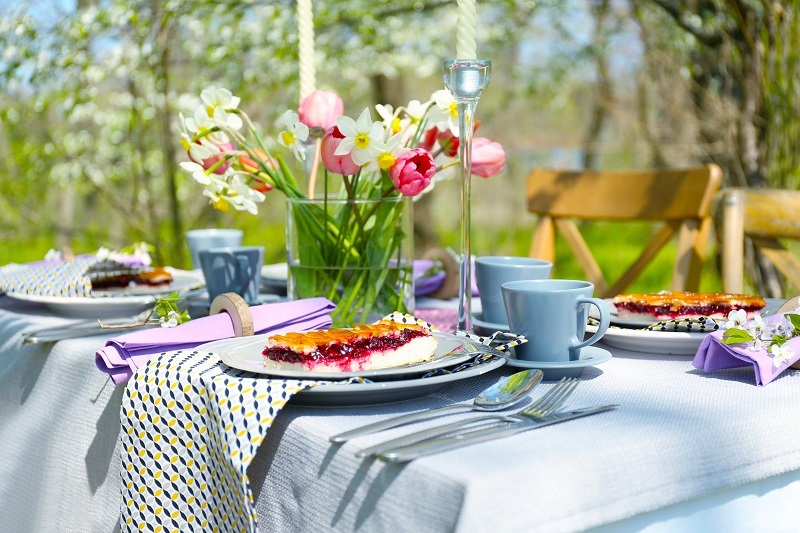Peony Flowers: Delving Into Their Rich Symbolic Meanings
Posted on 29/08/2025
Peony Flowers: Delving Into Their Rich Symbolic Meanings
Peony flowers have captivated the hearts of people around the globe for centuries. Beyond their breathtaking beauty, these blooms hold fascinating stories and complex meanings in various cultures across time. In this comprehensive guide, we'll explore the symbolic meanings of peony flowers, how they became important in different societies, and why peonies remain beloved today. Whether you're a gardener, flower enthusiast, or someone searching for the perfect floral gift, understanding the deeper significance of these blossoms can enrich your appreciation for their presence in gardens and bouquets worldwide.
What Are Peony Flowers?
The peony, known botanically as Paeonia, represents a genus of flowering plants that includes over 30 species. Native to Asia, Europe, and Western North America, peonies display large, lush blossoms in a spectrum of colors, from white and pale pink to deep red and yellow. Their intoxicating fragrance and full, ruffled petals have made them a favorite among florists, gardeners, and horticulturalists for centuries.
Fun fact: Peony plants can live for decades, sometimes blooming for up to 100 years if cared for properly!

The History and Cultural Legacy of Peonies
Peonies Throughout Ancient Civilizations
- China: Revered as the "King of Flowers," peonies date back over 2,000 years in Chinese history. They symbolize prosperity, honor, and social status. Often depicted in royal gardens, fine art, and poetry, the peony is China's unofficial national flower.
- Japan: Introduced from China, peonies gained popularity among the Japanese aristocracy and are associated with good fortune, bravery, and feminine beauty. They feature prominently in traditional tattoo art (irezumi).
- Europe: Adopted medicinally and ornamentally, in Greco-Roman traditions, peonies symbolized healing, protection from evil spirits, and even immortality.
Peonies Through the Ages
In the Victorian era, peonies became especially popular in English gardens and carried complex meanings in the language of flowers (floriography). Peonies often stood for romance, bashfulness, and compassion, making them a preferred bloom for bouquets, weddings, and social gatherings.
Core Symbolic Meanings of Peony Flowers
Over time, the symbolism of peony blossoms has evolved and diversified. Let's explore their most significant meanings:
1. Prosperity and Wealth
- Peonies are considered lucky charms for wealth and material prosperity, especially in Asian cultures.
- In feng shui, arranging peony flower art or live blossoms in the home is believed to attract abundance and good fortune.
2. Love and Romance
- With their lush, rounded blooms, peonies are often used in bridal bouquets and symbolize a happy marriage and lasting romance.
- They represent both the initiation of romance and the deepening of bonds in long-standing relationships.
3. Honor and Nobility
- The peony flower is a symbol of honor and regal beauty, frequently seen in royal and aristocratic imagery in East Asia.
4. Healing and Protection
- Historically, various parts of the peony were used in folk medicine to treat ailments from headaches to seizures.
- Peonies are believed to ward off evil spirits and bring health and wellbeing.
5. Bashfulness or Shyness
- In the Victorian language of flowers, peonies sometimes conveyed bashfulness or shyness due to folklore tales of nymphs hiding within their petals.
6. Beauty in All Its Forms
- Few other flowers rival the peony's dramatic layers and vivid hues, making them a universal symbol of both inner and outer beauty.
The Symbolism of Peony Flower Colors
Just as with roses and other popular blooms, the meaning of peonies can change depending on their color:
- Pink Peonies: Represent romance, love, and femininity. Pink peonies are the most popular choice for wedding arrangements.
- Red Peonies: Symbolize passion, respect, and honor. In China, red peonies are highly prized for their association with luck and prosperity.
- White Peonies: Stand for purity, innocence, and new beginnings. They are often used in arrangements for sympathy, remembrance, or to mark fresh starts.
- Purple Peonies: Evoke nobility, opulence, and luxury.
- Yellow and Coral Peonies: Thought to embody friendship, good fortune, and positive energy.
Peony in Traditional Arts and Literature
Eastern Art and Symbolism
From the intricate brush paintings of the Chinese Ming and Qing dynasties to delicate silk kimono patterns in Japan, peony flowers have long been revered as muse and motif. Poets and artists appreciate their rare blend of fragility and luxurious beauty. In many traditional artworks, peonies are paired with birds, butterflies, or other auspicious symbols to amplify their meaning.
Peonies in Western Culture
European painters from the Impressionist movement onwards often featured peonies in still-life compositions, celebrating their fleeting yet extraordinary beauty. In contemporary literature, peony bouquets symbolize the ephemeral nature of happiness and the importance of cherishing moments of joy.
Modern-Day Uses and Continuing Legacy
Today, the peony flower remains a beloved staple in celebration and memory across continents:
- Weddings: Due to their romantic associations, peonies are an in-demand choice for bouquets, centerpieces, and boutonnieres.
- Festivals: In China, peony festivals attract thousands, honoring both the flower's beauty and spiritual resonance.
- Gifts: Peony arrangements are given for a variety of occasions -- from birthdays and anniversaries to sympathy bouquets and graduations, each color and variety conveying a unique message.
Peony Flower Meanings in Feng Shui
In the world of feng shui, the peony flower symbolizes harmony and prosperity. Placing peony artwork or fresh blooms in specific areas of the home (such as the living room or bedroom) is thought to invite romance, enhance relationships, and uplift overall energy. Pink and red peonies are particularly favored for promoting love and partnership.
Peony Flower in the Language of Flowers (Floriography)
During the Victorian era, when emotions were often conveyed through blossoms rather than words, peonies delivered subtle, powerful messages. Gifting peonies could express:
- "I wish you happiness and a happy marriage."
- "It takes inner strength to remain gentle and compassionate."
- "You are beautiful inside and out."
- "I respect your quiet confidence."
Growing Peonies: A Symbolic Act in the Garden
To cultivate a peony plant is to participate in a tradition spanning millennia. Gardeners value peonies not only for their aesthetics but for the positive energy, hope, and good fortune they're believed to bring:
- Long Life: Peony bushes can survive and flower for generations, symbolizing family legacy and endurance.
- Season's Joy: Their blooming season, usually late spring and early summer, offers a vibrant reminder of the beauty and renewal possible in everyday life.
Popular Peony Varieties and Their Distinct Meanings
The peony family includes a range of cultivated types, each with slightly different connotations:
- Tree Peonies (Paeonia suffruticosa): Larger, woody-stemmed peonies known as "king peonies" in China, symbolizing elite status and grand fortune.
- Herbaceous Peonies (Paeonia lactiflora): Classic garden peonies with soft, luscious petals commonly representing elegance and romance.
- Intersectional (Itoh) Peonies: Hybrids that merge the best traits of tree and herbaceous types, representing innovation and resilience.
Peony Flower Myths and Legends
Greek Mythology
The origin of the peony is tied to legends of Paeon, a physician to the Greek gods. According to myth, Paeon used the peony plant to heal wounds, and Zeus transformed him into a flower, creating the peony as a symbol of healing.
Chinese Folklore
One tale tells of the Empress Wu Zetian, who commanded all flowers to bloom during winter. Only the peony refused, thereby earning her wrath but also gaining a reputation as a flower of integrity and courage.
Peonies in Contemporary Culture
With the rise of gardening, landscape design, and floral artistry, peonies have re-entered the spotlight. They symbolize the coming of spring and serve as a source of inspiration for designers, stylists, and artists worldwide. The hashtag #peony regularly trends on social platforms every bloom season, a testament to the peony's enduring popularity.

How to Incorporate Peony Symbolism Into Your Life
- In Home Decor: Add peony motifs through paintings, textiles, or wallpaper to fill spaces with beauty and positive vibes.
- In Gifting: Select peony bouquets to express heartfelt sentiments, appreciation, apologies, or celebrations.
- As Personal Inspiration: Let the resilience and lushness of peonies motivate mindfulness, compassion, and gratitude in daily life.
Conclusion: The Timeless Appeal of Peony Flowers
Peony flowers are much more than a visual delight. They are treasures of culture, history, and emotion. Whether admired for their lush appearance, cherished for spiritual connotations, or given to convey unspoken feelings, peony flowers continue to inspire wonder and reverence around the world. By understanding their symbolic meanings--prosperity, romance, honor, healing, and beauty--we can appreciate why this "Queen of Flowers" has enchanted generations. Next time you encounter a peony in bloom, remember you're witnessing not just a flower, but a living symbol of hope, abundance, and love.
Latest Posts
The Ultimate [AREA] Postcode Guide to Same-Day Flower Delivery
Peony Flowers: Delving Into Their Rich Symbolic Meanings
Transform Your Workspace with Easy-Care Office Plants






